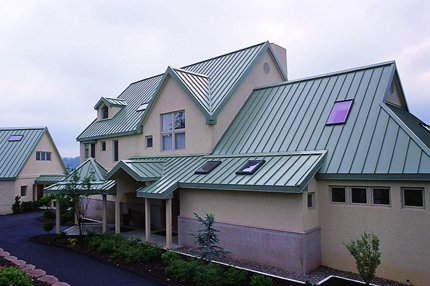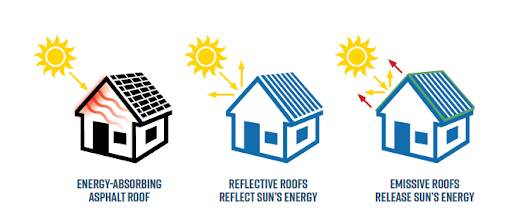Share
Or copy this URL:
https://www.metalroofing.com/news/cost-analysis-metal-vs-shingle-standard-residential-roof/

Posted by McElroy Metal
Comparing the cost of shingles and metal roofing is one of a homeowner's most common questions. It isn't easy to give a definitive answer to this question without more information. The cost analysis of metal vs. shingle for a standard residential roof depends on various factors, including the roof's complexity, size, type of metal or shingle being used, location of the property, and local labor costs.
In general, however, metal roofing tends to be more expensive than shingles. But the higher upfront cost delivers value in spades from a longer life expectancy, greater resistance to the wrath of mother nature, and even reduce energy costs.

The potential energy savings comes from metal reflecting heat from the sun, keeping a building cooler in the summer and consequently reducing the need for air conditioning. This can lead to lower energy bills and a more comfortable living environment.
Read this article about common misconceptions about heat absorption and metal roofs.
In contrast, shingle roofs absorb heat from the sun and transfer it into the building. Once the heat has entered the building, cooling systems need to work harder to remove the heat build-up. This increases the need for air conditioning, leading to higher energy bills. Shingle roofs also have gaps between the shingles, allowing air to escape and reducing the roof's overall insulation.
Some insurance companies offer discounts for metal roofs based on their superior performance in severe weather events. These cost savings can help offset the higher cost of a metal roof when available. In summary, it's important to consider more than just price when comparing metal roofs and shingles.
To learn more about the cost and return on investment of a metal roof vs. shingles, check out this detailed analysis.
Comparing the cost of shingles and metal roofing is one of a homeowner's most common questions. It isn't easy to give a definitive answer to this question without more information. The cost analysis of metal vs. shingle for a standard residential roof depends on various factors, including the roof's complexity, size, type of metal or shingle being used, location of the property, and local labor costs.
In general, however, metal roofing tends to be more expensive than shingles. But the higher upfront cost delivers value in spades from a longer life expectancy, greater resistance to the wrath of mother nature, and even reduce energy costs.
Life Expectancy
In terms of longevity, residential metal roofs can easily last 50 years, while shingle roofs typically need to be replaced around 20 years. This means that while a metal roof may have a higher upfront cost, they represent the more cost-effective option in the long run due to their longer lifespan. As a result, metal roofing provides greater value, making it the smarter financial decision for most homeowners.Energy Efficiency
Additionally, metal roofs are more energy-efficient and can help save on energy bills, while due to their composition, shingle roofs usually increase heating and cooling expenses.
The potential energy savings comes from metal reflecting heat from the sun, keeping a building cooler in the summer and consequently reducing the need for air conditioning. This can lead to lower energy bills and a more comfortable living environment.
Read this article about common misconceptions about heat absorption and metal roofs.
In contrast, shingle roofs absorb heat from the sun and transfer it into the building. Once the heat has entered the building, cooling systems need to work harder to remove the heat build-up. This increases the need for air conditioning, leading to higher energy bills. Shingle roofs also have gaps between the shingles, allowing air to escape and reducing the roof's overall insulation.
Greater Durability
Metal roofs are more resistant to extreme weather, such as hail and high winds, than shingles. In contrast, shingles tend to crack, break, and even become dislodged, leading to leaks and other damage. The greater resistance to extreme weather reduces the need for repairs and maintenance, making metal roofs more durable and cost-effective than shingle roofs.Some insurance companies offer discounts for metal roofs based on their superior performance in severe weather events. These cost savings can help offset the higher cost of a metal roof when available. In summary, it's important to consider more than just price when comparing metal roofs and shingles.
To learn more about the cost and return on investment of a metal roof vs. shingles, check out this detailed analysis.